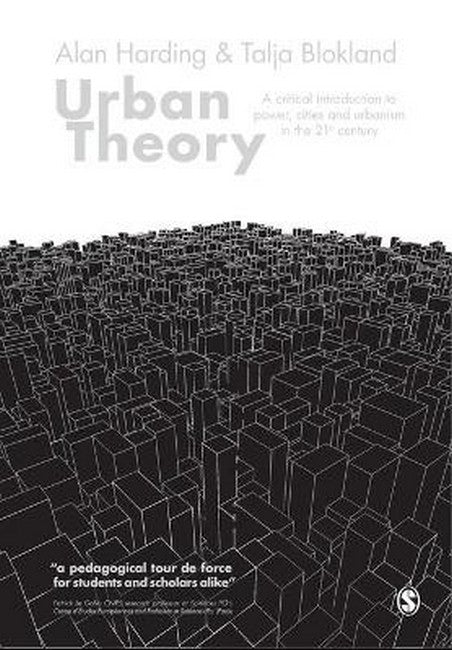Alan Harding is Professor of Public Policy and Director of the Heseltine Institute for Public Policy and Practice at the University of Liverpool Management School in the UK. Previously, he held posts at Manchester, Salford and Liverpool John Moores universities. His research interests are in urban and regional development, governance and policy and he has acted as an advisor on these issues for a wide range of leading agencies with interests in this field. Talja Blokland (1971) is an urban sociologist who has worked at Yale University, the University of Manchester and various Dutch universities. Since 2009, she has held the chair of Urban and Regional Sociology at Humboldt University in Berlin. Her publications include Urban Bonds (Polity 2003), Networked Urbanism (edited with Mike Savage, Ashgate 2008) and various articles on race and ethnicity in the city, poor neighbourhoods, urban violence, gentrification, urban middle classes and neighbourhood relations and everyday interactions.
Request Academic Copy
Please copy the ISBN for submitting review copy form
Description
1. WHAT IS URBAN THEORY? Urban Studies and Urban Theory What is Urban? What is Theory? And So What on Earth is Urban Theory? 2. URBAN THEORIES UNDER CONDITIONS OF MODERNITY The Chicago School and Urban Ecology Urban Geography and Spatial Analysis The Community Power Debate Humanistic (Urban) Geography 'Radical' Approaches The Legacy of Previous Theories and Their Challenges 3. FROM THE URBAN CRISIS TO THE 'TRIUMPH OF THE CITY' Cities as Actors in a Globalising Economy Urban Decline and Obsolescence Urban Economic Renaissance Discussion 4. CAN CITIES ACT? URBAN POLITICAL ECONOMY AND THE QUESTION OF AGENCY The Rediscovery of Agency Within Urban Theory Introducing American Urban Political Economy Urban Regimes and Growth Machines The Normative Dimension Critiques and Applications 5. SPATIAL EXPRESSIONS OF INTRA-URBAN INEQUALITIES Inequalities Versus Differentiations: Vertical and Horizontal Paradigms Cities as Sites of Resources: Space and Inequalities Segregation Suburbanization Gentrification Ghettoization as a Spatial Process of Marginalization Neighbourhood Effects: Spatial Profit and Disadvantage 6. SPATIAL EXPRESSION OF DIFFERENTIATION The Cultural Turn The City as a Realm of Community and Lifestyle The Subcultural Thesis The Representational City: Public Space Cultural Diversity: Identities in Public Space Conclusion: Cities as Matrix of Resources 7. URBAN THEORY RECONSIDERED The 'Crisis' in Urban Theory Revisited The Performance of Theories The Commensurability of Theories Theory, Politics and Practice A New Urban Agenda?
Just when we need it most, urban theory seems to be failing us. This book explains why we need it. -- Jamie Peck Harding and Blokland address the vaunted "crisis" in urban theory with a thoughtful assessment of extant theories in terms of performance, commensurability, and critical engagement. In a conversational and lively tone, they view theories of inequality, public space, identity, power, agency, and culture through the lens of "relaxed urban theory." Excellent overview for scholars and engaging classroom material. -- Susan E. Clarke Inspired by Peter Saunders's non-spatial urban thinking, Harding and Blokland's book provides a provocative, wide-ranging and comprehensive treatment of concepts geared to understand cities, and is a compulsory addition to any urban student's intellectual arsenal in a period of renewed interest in urban theory. -- Roger Keil Urban theory is said to be in a mess. Proceeding with great analytical clarity, this book introduces a relaxed definition of urban theory that enables the reader to make sense of the non-linear, variegated world of urban theory as it has developed over time and through the application of different disciplines, methods and epistemologies. In reviewing all the major conceptualisations of urban theory, Harding and Blokland provide clear insights into recent developments and the controversies and critiques they have provoked. The book is a pedagogical tour de force for students and scholars alike. -- Patrick Le Gales

